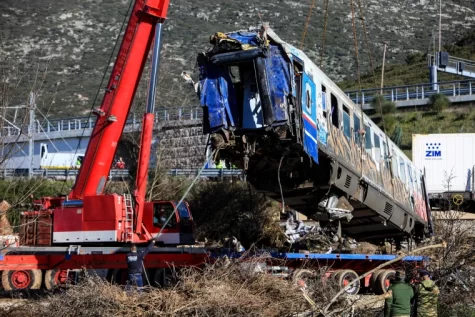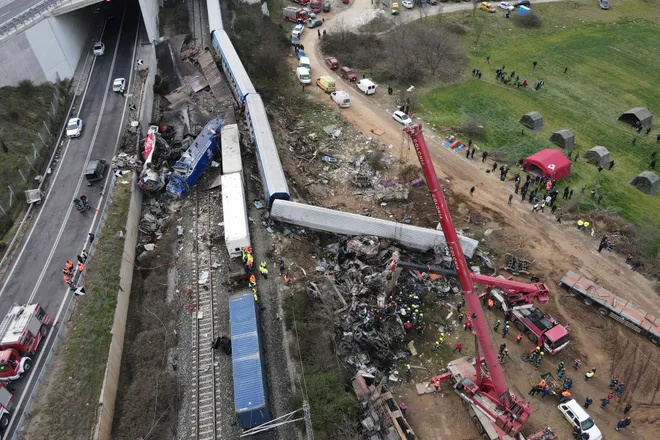Deadly Train Crash In Greece
March 10, 2023
On Tuesday, February 28, in Greece a station master told the driver of a train to ‘pass the red signal’ and in doing so caused the deadliest train crash in Greece.
The train crashed with 350 passengers onboard, causing many casualties with 57 people dead as of publication, most teenagers and people in their 20s, while 48 people remain in the hospital with seven people who are in the extensive care unit. The conductor of the train tried to say it was a ‘technical problem’ although there was evidence that the driver failed to switch the train tracks and later on the station master admitted to mishandling the situation.

The station master was charged with negligent homicide and is waiting for a pending trial on Sunday. While Prime Minister Kyriakos Mitsotakis apologized for any responsibility Greece’s government may have for the incident.
“I owe everyone, and especially the victims’ relatives a big apology, both personal and on behalf of all who governed the country for many years,” Mitsotakis wrote Sunday on Facebook. “In 2023, it is inconceivable that two trains move in different directions on the same track and no one notices we cannot, we do not want to, and we must not hide behind human error.”
I spoke to Samantha Sotelo from Corona High about the train crash.
“A ‘human error’ is not an excuse, this was not ‘human error’ this was someone who wanted others to feel the pain. This station master has been doing their job for a while they know better than to not know what they were doing, people died and that is not something that can just be fixed with a promise of taking responsibility or an apology,” Sotelo said.
According to Dictionary.com, human error is defined as a person mistake rather than on failure of a machine. Mistakes are something that can be fixed, you can make it up to a person but you can’t make up something to someone if they cannot accept your mistake. There were many lives lost on that Tuesday night in Greece 57 people won’t be able to see their families and grow.

